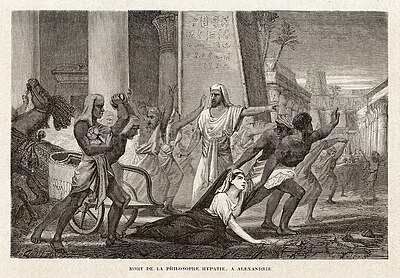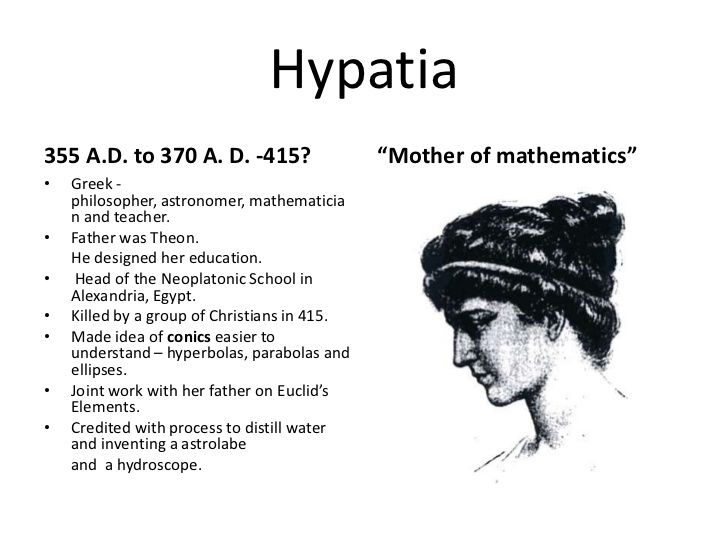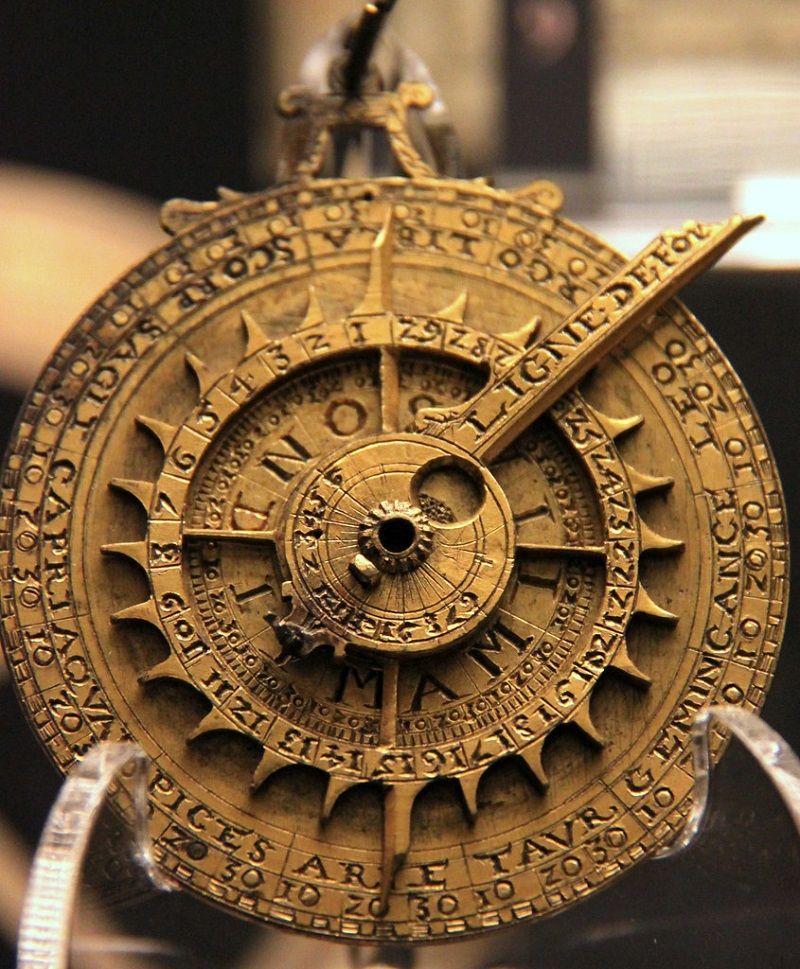Hypatia was a Greek mathematician and philosopher who lived in the 4th century AD. She is known for her contributions to mathematics and science, and is considered one of the first women to make significant contributions to these fields.
Hypatia was born in Alexandria, Egypt, which was at the time a major center of learning and intellectual activity. She was the daughter of Theon, a mathematician and philosopher who was the last known member of the Alexandrian Museum, a renowned institution for research and education. Hypatia received a thorough education in mathematics, astronomy, and philosophy from her father and other scholars, and went on to become a respected teacher and researcher in her own right.
One of Hypatia's most significant contributions to mathematics was her work on conic sections. Conic sections are geometric shapes that are created when a plane intersects a cone. Hypatia made significant contributions to the study of conic sections, and is credited with writing a treatise on the subject, which has been lost to history. In this treatise, she is believed to have discussed the properties of conic sections, as well as their applications in mathematics and science.
In addition to her work on conic sections, Hypatia also made contributions to the field of mathematics through her work on number theory. She is credited with introducing the concept of the "number" as a mathematical object, rather than simply a symbol used to represent a quantity. This was a significant advancement in the field, as it allowed for the development of more sophisticated mathematical concepts and techniques.
Hypatia's contributions to mathematics and science were not limited to her work on conic sections and number theory. She was also a skilled astronomer, and is credited with designing and building an instrument known as the astrolabe, which was used for making astronomical observations.
In addition to her work in mathematics and science, Hypatia was also an accomplished philosopher. She was a Neoplatonist, which was a school of thought that focused on the belief that the ultimate reality was an abstract, spiritual force. Hypatia was known for her lectures on Neoplatonism, which were attended by many of her students and other intellectuals of the time.
Despite her many contributions to mathematics, science, and philosophy, Hypatia's life and work have been largely overlooked by history. This is likely due to the fact that she was a woman living in a time when women were not afforded the same opportunities as men in these fields. However, her contributions have been recognized in more recent times, and she is now considered one of the most important figures in the history of mathematics and science.







